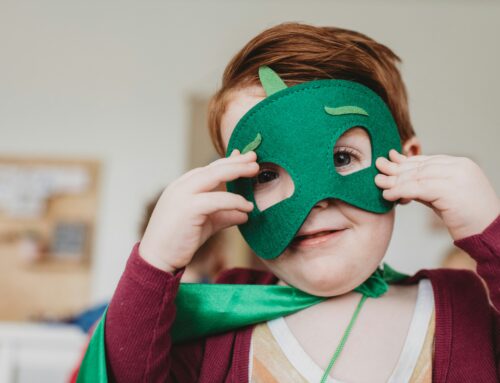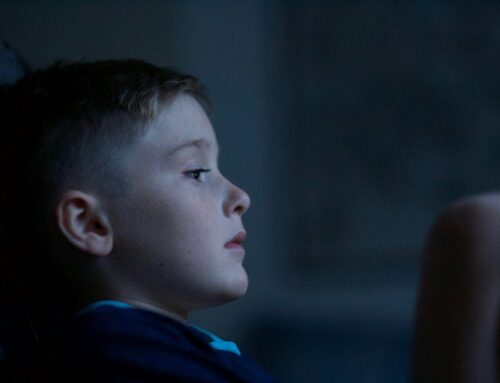Most everyone has had trouble falling or staying asleep at some point in their lives. People with chronic insomnia, however, regularly have difficulty sleeping. There are many different types of insomnia and many different causes. Certain medical conditions and medications can cause insomnia, but stress and poor sleep habits are two of the most common causes. (1)
Signs of Insomnia
If you’re experiencing insomnia, you might:
- Find it difficult to fall asleep at night or wake up throughout the night once you’ve fallen asleep
- Wake up from sleep too early
- Not feel rested after sleeping, or spend the day feeling tired
- Have trouble concentrating or focusing during the day
- Make more mistakes at work or at school
- Have a shorter temper, feel depressed, or notice anxiety
It’s important to consult a doctor if you notice symptoms of insomnia in yourself or in your child. Your doctor can determine if your symptoms are being caused by insomnia or another medical condition. They can also help you come up with a plan for managing insomnia.
Treating Insomnia: Do Medications Help?
When you need to manage insomnia, your first instinct might be to reach for a pharmaceutical solution. There are many medications and supplements, such as melatonin, that are well-known and prescribed for better sleep. However, medication also comes with risks and side effects.(2) This is especially true for children. You should never give your child medication for sleep problems without talking to your pediatrician first.
For older adults, sleep medications can also be dangerous. Older adults who take sleeping pills increase their risk of falls and other injuries.(2) However, for adults of average age, sleep medication is sometimes recommended by doctors. In this instance, medication is most effective when it is only being used for a short time period.
Medication only treats the symptoms of insomnia; it doesn’t cure the problem. There are times when immediate treatment of symptoms is necessary, but the most effective action for longer-term treatment is to address the cause of insomnia altogether. One way to do this is through a specific type of cognitive-behavioral therapy.(3)
Cognitive-Behavioral Therapy for Insomnia
Cognitive-behavioral therapy is used to treat many different mental health conditions. It can also be used to manage and treat insomnia. In fact, it’s usually recommended by health care providers before prescribing medication.(3) You’ll sometimes see cognitive-behavioral therapy for insomnia referred to as CBT-I.
CBT-I helps you change the way that you think about sleep. The goal of treatment is to help you identify thoughts and actions that make it difficult for you to fall asleep. You’ll learn to change these thoughts and behaviors.(3) You’ll also learn how to create the right environment for sleep. Relaxation exercises and keeping a sleep diary are other CBT-I methods that can help you sleep better.(3)
CBT-I is usually administered by a sleep medicine specialist. You can search for a professional trained in CBT-I through certain organizations, including the Society of Behavioral Sleep Medicine and the American Board of Sleep Medicine.(3)
In Baltimore, the John Hopkins Behavioral Sleep Medicine Clinic has certified sleep medicine specialists on staff. There are also specialists in Bethesda, Lutherville, and Potomac.
Is Your Insomnia Related to Another Condition?
Many neurodevelopmental disorders are associated with insomnia or problems sleeping. It is estimated that over half of children with ADHD and autism spectrum disorder have difficulty sleeping.(4) Older adults with dementia, as well as individuals who have experienced a traumatic brain injury, also suffer from a lack of quality sleep.(5) Mental health conditions, too, can negatively impact sleep.
NeuroBehavioral Associates in Columbia, Maryland provides comprehensive neuropsychological assessments for people of all ages with known or suspected cognitive, learning, or neurodevelopmental differences. Our assessments can help you understand if insomnia symptoms are related to a neuropsychological problem.
Contact our team today to learn more about the services that we provide at NeuroBehavioral Associates or to schedule an appointment.
References:
- Mayo Clinic. (2016, October 15). Insomnia – Symptoms and causes. https://www.mayoclinic.org/diseases-conditions/insomnia/symptoms-causes/syc-20355167
- Mayo Clinic. (2018, January 30). Prescription sleeping pills: What’s right for you? https://www.mayoclinic.org/diseases-conditions/insomnia/in-depth/sleeping-pills/art-20043959
- Mayo Clinic. (2016a, September 28). Insomnia treatment: Cognitive behavioral therapy instead of sleeping pills. https://www.mayoclinic.org/diseases-conditions/insomnia/in-depth/insomnia-treatment/art-20046677
- Corkum, P., Davidson, F., Tan-MacNeil, K., & Weiss, S. (2014). Sleep in Children with Neurodevelopmental Disorders: A Focus on Insomnia in Children with ADHD and ASD. Sleep Medicine Clinics, 149–168. https://doi.org/10.1016/j.jsmc.2014.02.006
- Saltzman, M., & Watson, N. (2012, November 1). Traumatic Brain Injury and Sleep Disorders. PubMed Central (PMC). https://www.ncbi.nlm.nih.gov/pmc/articles/PMC3482689/






